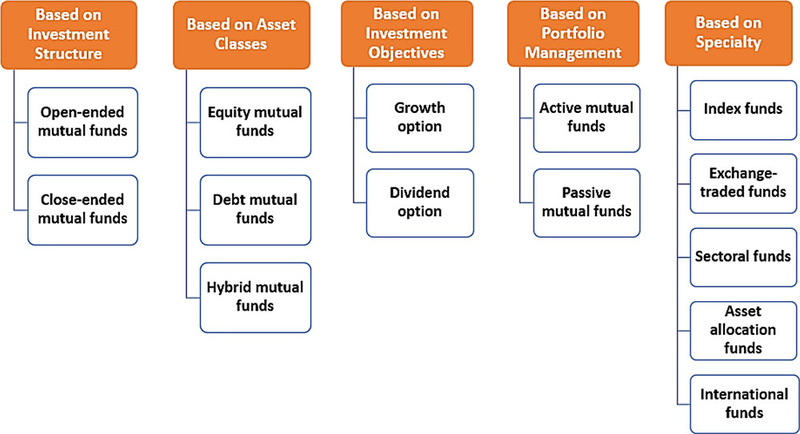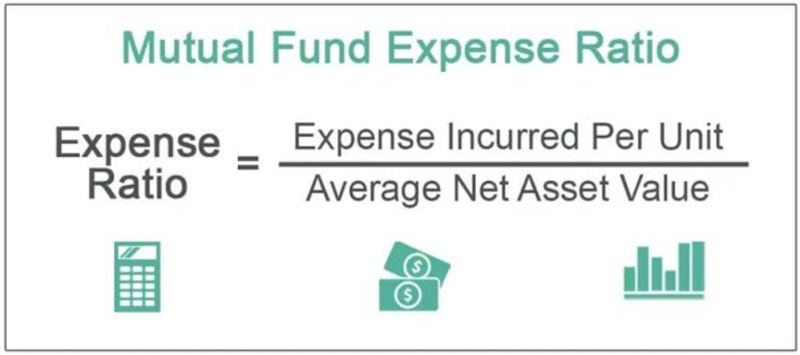Understanding Mutual Funds
May 18, 2024 By Susan Kelly
Mutual funds are a way of investing that combines money from investors to buy securities like stocks, bonds, or other types of assets. These funds are controlled by professional portfolio managers who decide how to invest the pooled money for all investors involved in this fund. Mutual funds provide two main benefits, spreading risk through diversification and having professionals manage your investments. These features make them appealing choices for people with different levels of risk tolerance and investment aims.
Types of Mutual Funds
Mutual funds come in many types, each one made for various investment goals and levels of risk. Funds related to equity mainly put money into stocks and this offers the possibility for big profits but also comes with more danger. In contrast, bond-related funds invest in fixed-income securities like government or company bonds. These provide lower returns yet exhibit less volatility. Balanced funds, also called hybrid funds, invest in a combination of stocks and bonds to give a balanced method toward risk and return.

Investors looking for a steady increase in capital over a long time usually like equity funds because they have shown better results than other types of asset classes when observed for extended periods. However, these funds are linked with the stock market and this can cause their value to go up or down greatly. On the other hand, bond funds are appreciated for their stability and ability to generate income. People who avoid risks or those nearing retirement may prefer them because they put importance on protecting capital.
- Tax Considerations: Investors should be aware that bond funds may generate taxable income, which can impact overall returns, especially for investors in higher tax brackets.
- Diversification Benefits: Balanced funds offer investors the benefits of diversification by spreading investments across multiple asset classes, reducing overall portfolio risk.
Specialized Mutual Funds
In addition to the basic equity, bond, and balanced funds, there exist mutual funds that are concentrated in specific sectors or investment themes. Sector-focused funds are designed for a specific industry like technology or healthcare. These let investors take advantage of opportunities within that sector. Index-based funds duplicate the performance of a particular market index, giving access to wide market movements at low cost. Furthermore, thematic funds put money into firms that are related to certain trends or themes like clean energy versus artificial intelligence.
Sector funds might attract investors who wish to focus their investments in particular industries they think will perform better than the overall market. For instance, technology sector funds could incorporate companies engaged in activities like developing software, making hardware, or providing internet services. Thematic funds give access to rising trends and game-changing technologies which can offer chances for high returns on investment.
- Risk Considerations: Specialized funds, such as sector or thematic funds, tend to be more volatile than diversified funds, as they are heavily concentrated in specific industries or themes.
- Research and Due Diligence: Investors should conduct thorough research and due diligence before investing in specialized funds to understand the underlying risks and potential rewards associated with these investments.
Mutual Fund Pricing
Prices of mutual funds are set by the net asset value (NAV) per share. This NAV is found by dividing the overall value of all assets in a fund by the number of shares that have been issued. Normally, NAVs are calculated at the close of business day using closing prices from underlying securities within the fund's portfolio. People who put money into mutual funds can purchase or sell their shares at this NAV price and it could change due to alterations in what these holdings are worth.
Besides NAV pricing, a mutual fund might have various share classes also. Each class could come with its fee structure and method of setting the price. For instance, institutional share classes usually show lower expense ratios than retail ones; this makes them better suited for investors in institutions or individuals with high net worth. Knowing the distinctions in pricing among different share classes can assist investors in selecting the most economical option for their investment requirements.
- Market Timing: Mutual fund transactions are executed at the end-of-day NAV price, regardless of the timing of the investor's buy or sell order. This helps prevent market timing strategies that may disadvantage long-term investors.
- Transparency: Mutual fund prices are transparent and publicly available, allowing investors to track the fund's performance and make informed investment decisions based on current market conditions.
Load vs. No-Load Funds
Another way to classify mutual funds is by their fee structure. Load funds require a sales commission or fee when buying and selling shares, this payment goes to the fund's salesperson or distributor. On the other hand, no-load funds don't have these sales commissions which makes it less costly for investors. But, what is more essential to recognize for investors is that no-load funds might have other charges like management fees and running costs.
Load funds often have various share classes such as front-end loads, where you pay a fee when buying, and back-end loads require payment upon selling your shares. These sales charges can impact the total return on investment, especially for people who frequently buy or sell fund shares. No-load funds might be more attractive to those investors who focus on reducing fees and expenses.
- Share Class Considerations: Load funds may offer different share classes with varying fee structures, such as Class A, Class B, or Class C shares. Investors should carefully evaluate the costs and benefits of each share class before making an investment decision.
- Fee Waivers: Some mutual funds may offer fee waivers or discounts on load fees for certain investors, such as those investing above a certain threshold or participating in employer-sponsored retirement plans.
Expense Ratios and Fees

Expense ratios are like yearly charges that mutual funds impose to cover their operational costs. These expenses consist of management fees, administrative expenses, and marketing expenditures. The rate is presented as a fraction of the fund's average assets under its control per year and may differ considerably among various funds. When choosing mutual funds, investors need to consider expense ratios because higher fees can reduce overall investment returns over some time.
Mutual funds have expense ratios, but there could be other fees too. This includes things like redemption fees - a cost that comes when an investor sells their fund shares in certain time frames to stop quick trading and timing the market. Also, account maintenance fees (or account service fees) are charged to cover administrative expenses linked with keeping the accounts of investors.
- Passive vs. Active Management: Actively managed mutual funds typically have higher expense ratios compared to passively managed funds, as they involve active research and investment decision-making by portfolio managers. Investors should consider whether the potential benefits of active management justify the higher fees.
- Fee Negotiation: Some brokerage firms or financial advisors may negotiate fee discounts or rebates on mutual fund expenses for their clients, particularly for large investment accounts or high-frequency traders. Investors should inquire about fee negotiation options to potentially lower their investment costs.
Conclusion
To end, mutual funds give an easy method for investors to get a share in a varied collection of securities handled by expert investment managers. By learning about different kinds of mutual funds and how they are priced, investors can choose wisely based on their investment goals and ability to handle risk. Whether one is putting money into equity, bond, or specialized fund types it remains crucial that they consider charges involved along with performance track records as well as strategy used by the particular fund manager; all these factors contribute towards creating an effective investment portfolio.

Unearthing and Rectifying Credit Report Blunders
By Triston Martin / Nov 30, 2023
Dive into this article to learn how to identify and fix mistakes on your credit report. Discover the steps to improve your credit score and financial health.

Brewing Rebellion: The Boston Tea Party After 250 Years
By Susan Kelly / Jan 17, 2024
Explore the historical significance, impact, and enduring legacy of the Boston Tea Party, a pivotal event in America's quest for independence.

Your Credit Card Was Hacked: Immediate Steps to Take
By Susan Kelly / Nov 30, 2023
This guide provides a comprehensive approach to dealing with credit card fraud. It offers a series of well-structured, practical steps to help victims mitigate the damage and safeguard their personal and financial information in the future.

Ways Marginal Revenue Related Marginal Cost Production
By Susan Kelly / Feb 11, 2024
Marginal cost of production and the marginal revenue are economic metrics that are used to calculate the quantity of output and the price per unit of a product that will result in the greatest amount of profits.

Exploring Navy Federal Credit Union Business Loans
By Triston Martin / May 15, 2024
A detailed review of Navy Federal Credit Union business loans, including who can apply for them, the types available, and pros, and cons.

Understanding Mutual Funds
By Susan Kelly / May 18, 2024
Uncover what mutual funds are and how they're priced, as well as the different kinds of mutual funds.

All About Recoverable Living Trust
By Triston Martin / Jan 24, 2024
Created throughout the Grantor's (the person establishing the trusts) lifetime, a Revocable Living Trust is a legal document that controls the trust assets for as long as the Grantor is alive.

Demystifying the Annual Insurance Review: Your Simple Guide to Ensure Adequate Coverage
By Triston Martin / Nov 25, 2023
Unlock the secrets of an effective annual insurance review with our simplified guide. Learn to navigate your insurance policy, make informed decisions, and ensure your coverage meets your needs.

What is ManhattanLife Insurance? A Thorough Review
By Triston Martin / May 09, 2024
Manhattan Life Affordable Choice offers a variety of personal, family, and business insurance policies.

SR-22 Insurance: Definition and Working in Detail
By Triston Martin / May 12, 2024
An SR 22 Insurance Missouri indicates you have the necessary insurance coverage. It helps restore driving privileges or license suspension.

Unveiling the Mystery Behind Mortgage Interest Deduction
By Susan Kelly / Oct 11, 2023
Dive into this article to explore what is Mortgage Interest Deduction (MID), the people who can benefit from it, and how it ensures financial stability.

Methods to Stay Away From the Payday Loans
By Triston Martin / Jan 17, 2024
If you’re confused about how to avoid a payday loan, then explore the modest methods you can use instead of payday.